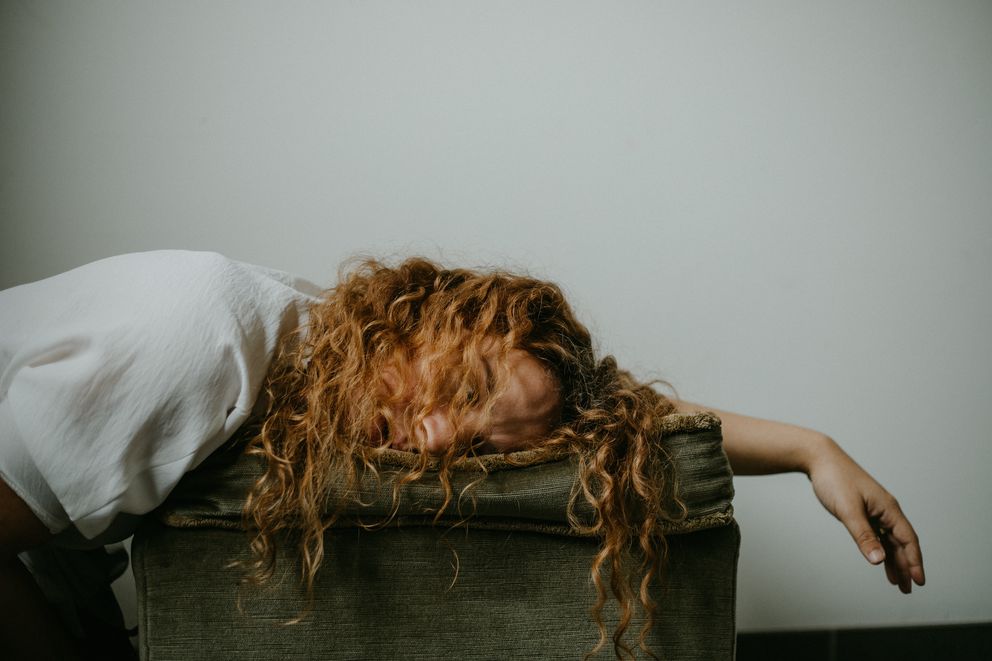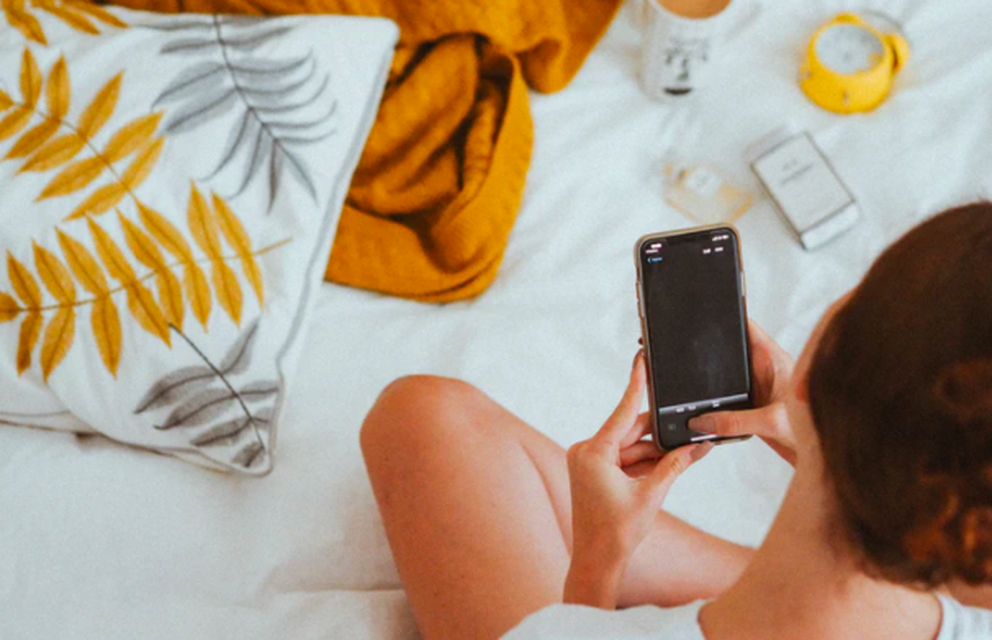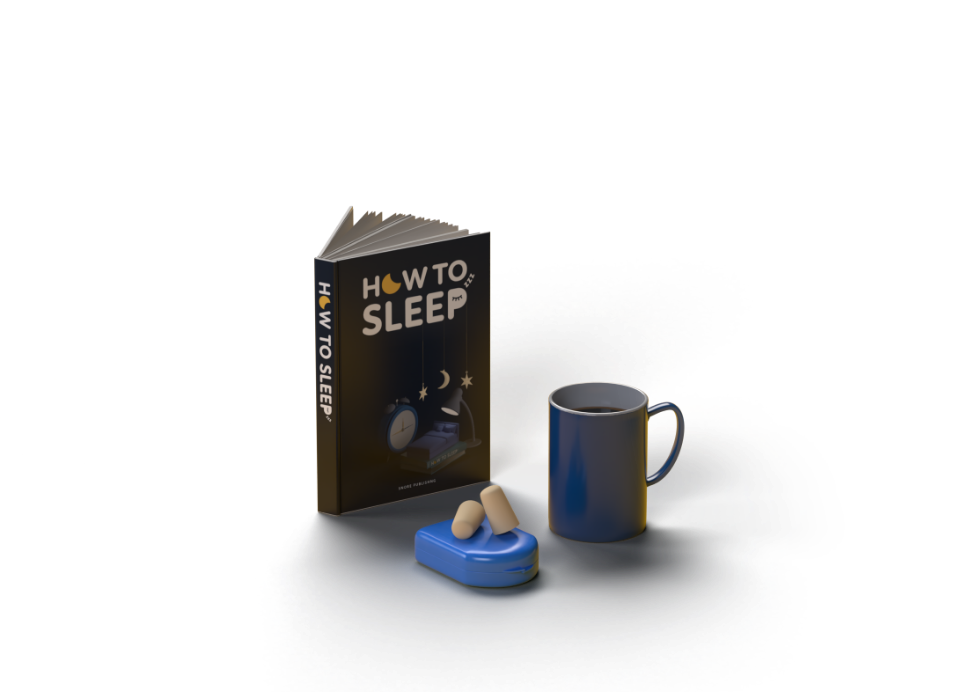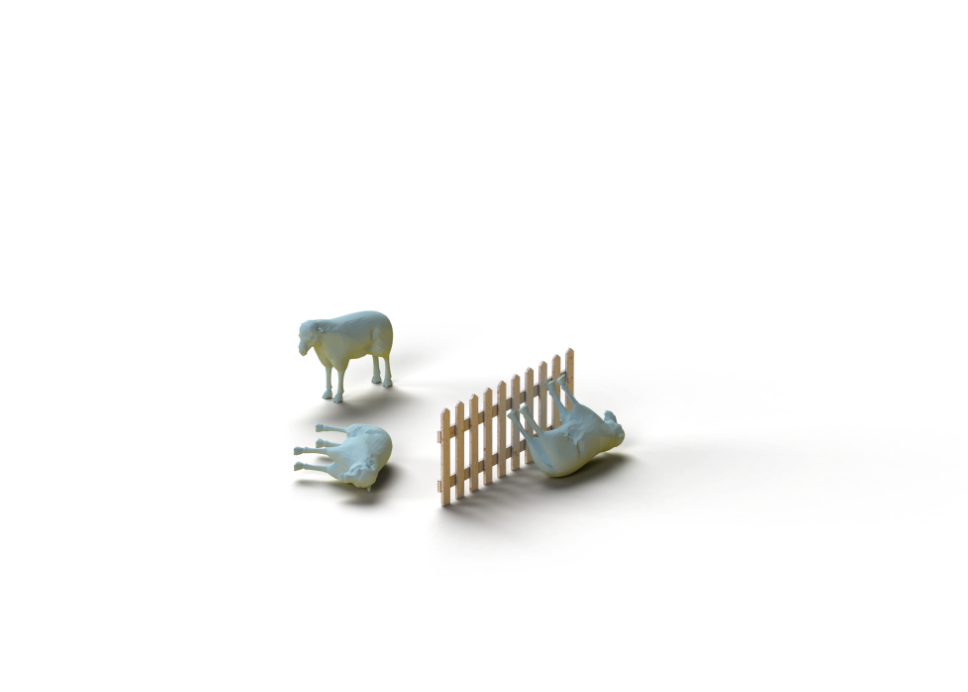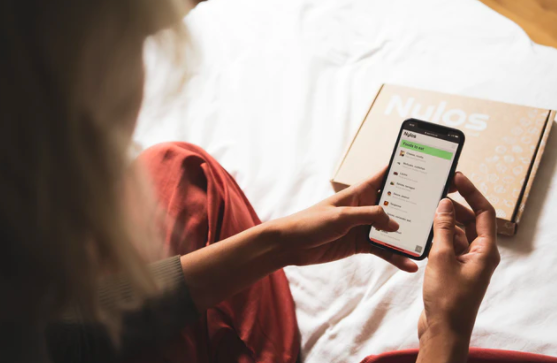
The effect of technology on sleep
Learn moreContents
Getting the right level of sleep is crucial. We need to recharge to be able to work at full capacity. But getting to sleep in the 21st century is a little different to how it used to be.
We’re surrounded by more distractions than ever before. Technology has had the greatest impact on our nighttime routine, thanks to the likes of televisions, games consoles and smart devices.
The introduction of these forms of tech gave most people a very different bedtime routine to previous generations. It’s now normal to sit in bed, scrolling through Instagram or Facebook on a phone or tablet. But how much of an impact is this having on our relationship with sleep?
In this guide, we’ll look at how the light from smart devices affects our brains, as well as tackling the best way to manage your relationship between sleep and technology.
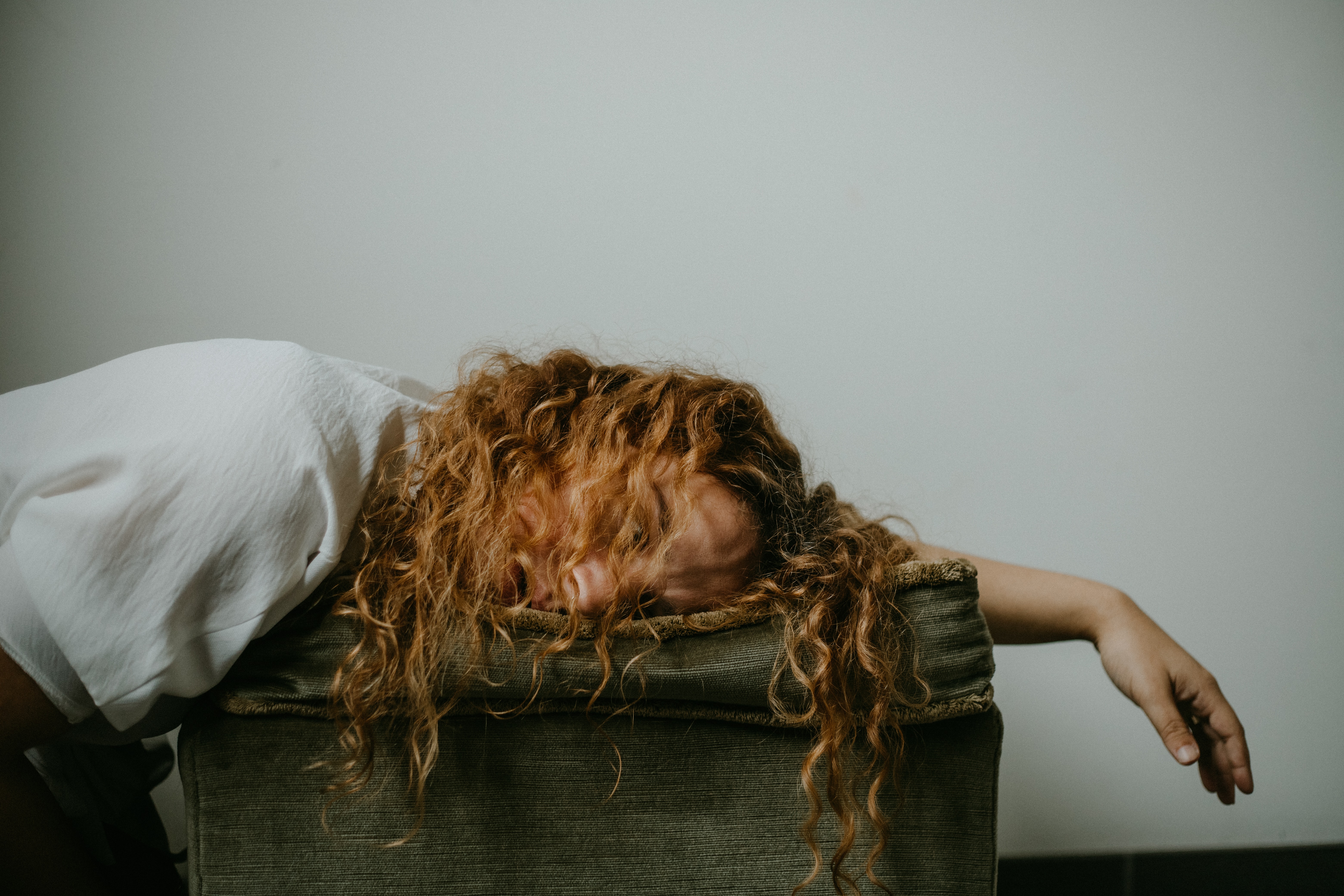
Chapter 1
The relationship between technology and sleep
Technology didn’t exist for the majority of the evolutionary process. That means our brains haven’t developed to process it in the same way we absorb natural sunlight. Let’s explore what that means for someone using tech right before bed.
Technology’s biological impact on the brain
As we’ve discussed, our brains weren’t developed to deal with the kinds of tech we’ve developed in recent years. That means we have chemical reactions which can have a negative effect on our ability to fall asleep.
Arguably the biggest impact faced is a decrease in our levels of melatonin production. This is the hormone which sends a signal to the brain telling us we need to sleep. When the amount in our system is low, the body finds it harder to shut down for the night.
Some of the biggest disruptors of melatonin production include things like:
Electromagnetic radiation. When you connect to wi-fi, a phone will give off an electromagnetic wave of radiation. This has been a proven cause of melatonin dips. Most technological devices will emit this kind of radiation, but phones are the worst offenders.
Emotional stimulation. Using our phones or a games console will give us a psychological stimulus which keeps our brains active. This makes it a lot harder to shut off before heading to bed. Having an emotional conversation or watching a show with lots of action can also trigger this kind of response.
Blue light emission. This is the most common type of light to be produced by electronic devices. It has a massive impact on melatonin production. The effects can be so severe that some phones will even create blue light dimmers to help reduce the problem.
These biological factors make it incredibly difficult for the brain to process the fact your body needs recharging. But the lack of melatonin isn’t the only thing which will have an effect on your ability to sleep.
Technology and sleep distraction
Aside from the scientific impact of light on the brain, there are also psychological reasons why using technology directly before sleeping will cause you to stay awake for longer.
Notifications. We’ve all been guilty of letting our notifications take over. That’s fine, to an extent, but it can be incredibly distracting when we’re trying to shut off for the night. Allowing a phone to constantly buzz will keep your brain active when it needs to be resting.
Bad habits. It’s become quite common for people to make the use of technology part of their bedtime routine. This can quickly turn into an unwelcome cycle. You’ll find yourself using your phone before bed, being unable to sleep, and then using the phone again when you can’t drop off. It can cost you hours of rest every night.
Activity absorption. One more minute can quickly become one more hour. It’s easy to get lost in the world we’re indulged in. And while the same can happen if we’re reading a book, it’s a lot easier to conclude where we are at the end of a chapter. Video games and chats with friends don’t always have a hard-and-fast endpoint.
While these factors are things you’ll have greater levels of control over, they still play a huge part in sleep deprivation. We’ll look at ways to tackle your reliance on technology later on.
The difference between interactive and passive technology
Not all technology affects someone in the same way. There are subtle differences between types of distractions, which have an impact on our brains differently.
Active or interactive technology. When you engage in something which involves you inputting a change on a screen, you’re experiencing active technology. That means things like a video game or texting a friend. These actions require you to really think about what you’re doing, meaning your brain stays active for longer.
Passive technology. That means tech which involves watching television shows, listening to music or reading an ebook. While these won’t directly spark your brain into life, they will still affect you as a result of electromagnetic radiation and blue light emission.
While the two forms of tech cause slightly different reactions in our brains, both have a negative impact on our ability to shut off. They keep our brains active and engaged. Great for day-to-day life, but less ideal for when you’re trying to nod off.
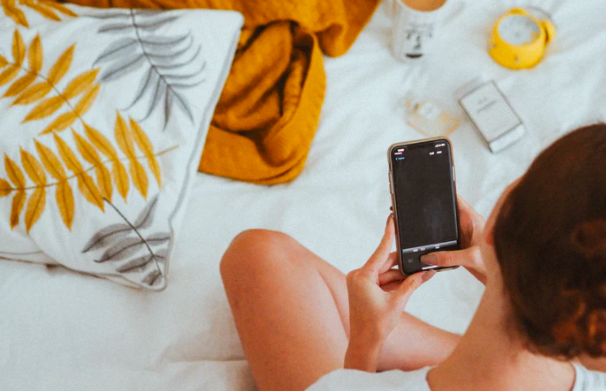
Chapter 2
Using technology before bed
Finding the perfect balance between technology and sleep is difficult. Putting all forms of tech down and outright abandoning their usage isn’t a viable approach. Let’s explore what can be done to optimise the use of your tech before you sleep.
When should I stop using technology before bed?
Understandably, it’s impossible to cut out the use of technology altogether. We live in a society which is heavily affected by the need of our social bubble to be constantly available.
As such, you need to find a balance regarding when is best to cut off your usage. Here are some of the best tips for managing your use of tech directly before you sleep:
Give yourself 30-60 minutes. It’s generally advised you turn off your electronic devices thirty minutes to an hour before bed. Try to fill this time by engaging in something which doesn’t produce light – such as reading a book or doing some relaxing yoga.
Take electronics out of the bedroom. If you really feel as though you can’t control yourself, it might make sense to remove your devices from your bedroom altogether. This will help your brain view your bedroom as a place exclusively for sleep.
Dim your device. Most devices come with the ability to let you dim their levels of brightness. It’s usually found in the settings. Turn this down to a level which still allows you to see what you’re looking at, without it giving off too much blue light.
Following this advice will make it a lot easier to manage your technological usage directly before bed.
The impact of technology on your kids before bed
As with most things which affect the human body, the distraction of technology will have a different impact on kids than adults. Often, young children and teens will experience more severe sleep deprivation than grown ups.
A study by US college Rasmussen found that teens and kids were, unsurprisingly, the group who text the most during the evenings. They found the following numbers for the hours before sleeping:
Baby boomers – 5 texts
Gen-xers – 15 texts
Gen-yers – 42 texts
Gen-zers – 56 texts
The average – 21 texts
As a result of this, Gen-Zers were on average finding themselves getting 30 minutes less sleep per night on average. The use of technology before bed has been normalised in recent years, which probably explains the surge amongst this particular generation.
Monitoring your child’s use of technology before sleep
Owing to their reliance on tech, it’s a lot harder for kids to follow guidance on their own. It falls on parents to give them a clear view of what they should be doing to help their brains shut down for the evening.
Some of the best steps a parent can take include:
Being a sleep role model. Kids have a tendency to look up to their parents. Make the most of this by demonstrating what you should be doing before bed. The National Sleep Foundation discovered if parents had technology in their bedroom, their children were more likely to as well.
Get them to read before bed. This is great for a number of reasons. Not only are you encouraging them to get involved in something which won’t emit blue light, you’ll also be giving their brains a platform through which to develop.
Help them create a schedule. This is another thing which might be valuable beyond just sleeping. Having a routine can help them find a rhythm before bed, while also providing them with a means of organising their own life heading forwards.
Ultimately, your child will have to learn for themselves just how important having the right relationship with sleep and technology is. While you can do everything in your power to show them, it falls on them to get into habits which promote good sleep health.

Chapter 3
How to battle technological stimulation before bed
We’ve analysed how technology can impact your brain, as well as how to manage your relationship with it before you sleep. Now let’s look at proactive steps you can take to stop devices from having a major impact.
Using a sleep journal
A sleep journal might not be something you’ve considered before, but it can have a major impact on how well you sleep by giving you a clear view of where you might be losing rest.
Think about keeping a log of things like:
What time you go to sleep
Anything unusual, like waking up during the night
When you woke up
Any naps you took during the day
Anything you did or consumed before bed
This is a really effective way of finding out if there are any regular disturbances which you can easily pull out and identify. If you’re worried about using an electronic device, you can always make a note of this using a traditional pen and paper.
Using technology as an aid
Not all technology is your enemy when it comes to nodding off. There are actually plenty of really handy sleeping aids out there to make it simpler to slip away at night. Some of the best include things like:
White noise machines. These devices emit a sound which effectively drowns out all other ambient noise in the home. They’ll most often give off a dull hum, which serves to create a metronomic rhythm to fall asleep to.
Light-blocking glasses. We’ve already discussed how blue light can decrease your levels of melatonin. The best way to counter that is by using orange-tinted glasses, which block the light from reaching your eyes.
Timer light therapy glasses. In complete contrast to this, there’s also the option of using specialist glasses which provide you with gradual doses of blue light. These can help you regulate your sleep patterns, making it easier to drop off at the right time.
Sleep tracker. This won’t directly help you sleep better, but it will make it a lot simpler to work out where you’re going wrong. This can be included as part of your sleep journal.
If you’re finding it hard to achieve a constant rhythm, employing the use of this technology might be a good option.
Bedtime habits to encourage sleep
We’ve seen how important having a routine can be for your sleep health. Here are some other sleeping habits which will have a positive impact on your ability to fall asleep.
Get up early on weekends. We know that doesn’t sound like an appealing prospect, but it will have a huge impact on your ability to fall asleep at a more appropriate time. Lying in until 10:30 might sound like a good idea, but you’ll regret it when you’re unable to fall asleep in the evening.
Make sure your room is comfortable. It’s really difficult to fall asleep in the wrong environment. That means optimising your room for everything from temperature to comfortability. Even subconscious things like keeping your room tidy can be a big help.
Don’t try to force sleep. If you’re not tired, don’t lie in bed getting frustrated. Pick up something which won’t stimulate your brain too much (like a novel or puzzle book). Getting annoyed in bed will only make it harder to fall asleep, entering you into a vicious cycle.
Try practicing some of these techniques and you’ll find drifting off to be a lot simpler.
